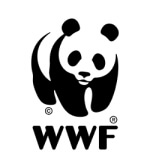GOA, Camarines Sur – After a year of collaboration, WWF-Philippines’ Sustainable Tuna Partnership 2 (STP 2) project and Partido State University (ParSU) have officially launched the Collaborative Access to Tracking Community Handling of Fisheries Information, Science, and Harvest (CATCHFISH) database.
The launch, held on December 12 at ParSU, was highlighted by the signing of Memorandums of Agreement (MOAs) with 12 municipalities across the Lagonoy Gulf, formalizing their commitment to integrating CATCHFISH into their fisheries management systems. 5 municipalities from across the Mindoro Strait had additionally signed MOAs earlier, signifying their prior adoption of CATCHFISH.
WWF-Philippines Executive Director Katherine Custodio, along with Lagonoy IFARMC Chairman Arnel Boholst, of Fisheries and Aquatic Resources Bicol Regional Director Ariel Pioquinto, and Sagnay Municipal Mayor John Vincent Fuentebella graced the occasion, promising their support on the database’s rollout.
The CATCHFISH database is set to enhance fisheries management by enabling real-time tracking of fish catch data and monitoring of registration and licensing compliance among fishers. Its integration is expected to improve decision-making processes by providing science-based and accurate insights into the state of fisheries across the Lagonoy Gulf and Mindoro Strait.
“With CATCHFISH integrated into our municipalities’ processes, we expect to achieve sustainable and well-managed fisheries,” said Joann Binondo, Overall Project Manager of STP. “By allowing fishers to log their catch and providing local government units (LGUs) with real-time access to this data, it helps prevent Illegal, Unreported, and Unregulated (IUU) fishing and enables local government units to make informed decisions on fisheries management, effectively preventing overfishing,” she further explained.
In addition to curbing illegal, unreported, and unregulated (IUU) fishing and overfishing by supporting policy development and regulatory compliance, CATCHFISH is also poised to deliver a range of other benefits including enhancing community engagement by increasing transparency and trust between the communities and municipal authorities; advancing research and development by enabling the access to comprehensive and reliable data; and improving environmental disaster response by allowing immediate access to critical fisheries data, facilitating the timely decision-making and response to environmental emergencies.


